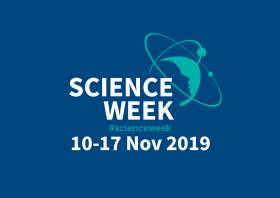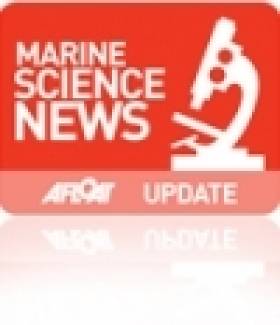Displaying items by tag: Science and Technology
Marine & Climate Science On Show At Mayo & Galway Science Festivals
Marine science and ocean climate research will be showcased to mark Science Week 2019 at science and technology festivals in Castlebar this coming Sunday 17 November, and Galway next Sunday 24 November.
The Marine Institute will host an interactive stand at the Mayo Science and Technology Open Day which will include a display of corals, mermaid’s purses and live fish species.
Children can identify invertebrates under the microscope and find out more about plastic waste in our oceans. There is also an opportunity to learn more about the research undertaken at the Marine Institute’s facility in Newport, including its involvement in the Bluefin Tuna Data Collection Programme.
Elsewhere, the Galway Science and Technology Festival next weekend will focus on climate action, understanding climate change, and how science and technology can help us create a positive climate impact.
At the Marine Institute stand visitors will learn about the work undertaken by the institute to observe and understand how our ocean is changing.
An Argo float, which collects important data on the temperature and salinity of the ocean, will be on display. There will also be video displays and interactive touch screens on the institute’s involvement in marine biodiversity research.
Among other attractions, visitors will have the chance to see a mini ROV, or remotely operated vehicle, as well as models of Ireland’s marine research vessels the RV Celtic Explorer and RV Celtic Voyager, and how this infrastructure is used for fisheries and oceanographic research.
The Marine Institute stand will also host a competition to win a tour of the RV Celtic Explorer, or an Explorers Seashore Safari lesson for their primary school class.
The Mayo Science and Technology Festival will be held at GMIT Castlebar on Sunday 17 November from 11.30am to 6pm. Galway Science and Technology Festival will take place at the Bailey Allen Hall, NUI Galway on Sunday 24 November from 10am to 6pm.
For more information on activities taking place this week for Science Week 2019, click HERE.
Seawater Antennas Not Just Science Fiction
Communiations on the ocean could be vastly improved by a surprising method straight out of the sci-fi books - antennas made out of seawater (SEE VIDEO BELOW).
The US Navy is already engineering a revolutionary scheme to replace its bulky warship communications arrays with antennas composed of jets of seawater shot through electromagnetic hoops.
The salt in the water is the key component that allows the water jet to conduct electronagnetic signals just like a standard metal antenna. Frequency adjustments can be easily made by controlling the height and width of the water stream.
Popular Science speculates that the antennas could serve as compact emergency antennas for civilian watercraft or communication systems on offshore oil rigs.
Ship Based Training Launched
The National Research Ship-time Training Programme today (7th September 2010) announced the launch of the autumn Science@Sea ship-based training courses for undergraduate and postgraduate students studying marine science.
The two-day training courses are to be held between the 18th and 21st of November 2010 and offer students an opportunity to work aboard the national research vessel RV Celtic Voyager, gaining practical experience in marine research in the waters off Cork.
"Students will work with scientists and technicians while on board, allowing them to develop a multidisciplinary approach towards marine science, focussed on integrating the core disciplines of oceanography, marine geophysics, benthic ecology and fisheries biology," said Dr. Paula McGrane, coordinator of National Research Ship-time Training Programme. "Other areas addressed will include the practicalities of survey design and planning, research vessel operations and capabilities and safety at sea".
"Science@Sea courses have been running since spring of 2008 and are recognized by the Institute of Marine Engineering, Science and Technology (IMarEST) as a means of contributing towards a student's professional development and career," she added.
The course dates are as follows: ·
Postgraduate Course: 18th -19th November (Thursday & Friday) ·
Undergraduate Course: 20th -21st November (Saturday & Sunday)
Application forms and further information about the programme can be found on www.marine.ie or by e-mailing [email protected]


























































